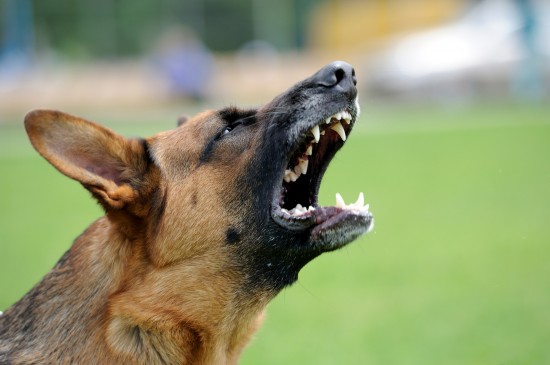
The popularity of the police dog in Europe, and the almost unbelievable results accomplished by dog training during the First World War inspired scientists and animal experts to undertake the study of dog psychology for the purpose of improving, if possible, upon the training systems then in vogue. Successful training is possible only in the presence of perfect understanding between the trainer and his dog. Clearly then, there can be no such understanding without full knowledge of the dog's mental capacity; that, plus an understanding of his character.
For years controversy has raged regarding the dog's ability to reason. And because of the close bond of affection between everyman and his dog, any have held to what they believed to be true, that the dog can and does reason. But I agree with those scientists and intelligent students who claim that he cannot. I do not believe there is any such thing as reasoning power in the dog. I believe, rather, that he merely reacts to directions given by man. In other words, those feats of certain wonder dogs which so often arouse astonishment and admiration are not the result of independent thinking on the part of the animal: quite to the contrary, they are no more than obedience to some visible or audible sign, signal or command.
It is not my purpose to underestimate, or to over estimate, mental capacity or the ability to learn which differs markedly in dogs. Some will learn quite rapidly. All, however, need signs or commands. How often we hear someone exclaim: "My dog understands every word I say to him!" But he doesn't. Let me explain.
A dog responds to like sounding commands having different meanings but a similar inflection of the voice. For example, a dog that has been trained to the command "Heel," if ordered "meal," "reel, "steal" or "veal," will obey as readily, despite the fact that he has been told to do something entirely different or that he has heard an expression devoid of any meaning at all as a command word. That, I consider, proves that the dog cannot think independently.
Again, in support of my contention is the fact that the dog will not alone obey like sounding words given as commands, but that he will observe and interpret various tones of the voice with apparent disregard for the words employed. For instance, a dog caught in the midst of a destructive act and given a severe scolding in a sharp tone of voice will slink away with his tail between his legs; whereas under exactly the same circumstances, he will continue his destructiveness if admonished in a soft, loving tone of voice.
Still another example is concerned with many dogs which had been trained in Europe' and which, when brought to me, did not understand English words. It was of course comparatively easy to change into English the complete list of commands, signs and words so that the dogs could be re-train in that language. I soon discovered however that a dog trained to the order "Gib Pfote" (shake hands) would not respond to English, but that when I offered my hand he would respond at once. Though he could not understand the words, he did recognize the sign which, like the inflection of the voice, is the same in any language.
Further proof of the dog's lack of reasoning power is supplied by the dog that lies in front of the fireplace. The moment the log burns down he seeks a warmer spot. Other logs, close at hand, have only to be put on the fire to keep it burning, and the dog has upon innumerable occasions has seen his master do. Yet he will not do it nor can he be taught to do it for himself. If he can reason, then why does he not do exactly what his master did in order to provide more heat!
 Jogging With Your Dog - The Dos And Donts Of Taking Part In A Fun-run
Jogging With Your Dog - The Dos And Donts Of Taking Part In A Fun-run
 Decoding A Kittens Behaviour & Their Body Language
Decoding A Kittens Behaviour & Their Body Language
 International Travel With Your Pet
International Travel With Your Pet
 Some Helpful Information For The Owners Of Dogs That Cannot Be Vaccinated
Some Helpful Information For The Owners Of Dogs That Cannot Be Vaccinated
 What Factors May Trigger An Aggressive Dog?
What Factors May Trigger An Aggressive Dog?
 The Siamese Cat - An Oriental Talkative Treasure
The Siamese Cat - An Oriental Talkative Treasure
 Hypertrophic Cardiomyopathy In Cats Explained
Hypertrophic Card
Hypertrophic Cardiomyopathy In Cats Explained
Hypertrophic Card
 Pets: The Dog I’ll Always Remember
Pets: The Dog I’ll Always Remember
 How Bitches Behave When In Heat
How Bitches Behav
How Bitches Behave When In Heat
How Bitches Behav
 All About The Hungarian Kuvasz Dog Breed
All About The Hun
All About The Hungarian Kuvasz Dog Breed
All About The Hun
 Keep your pet animal safely in your absence in pet day care
Keep your pet animal safely in your absence in pet day car
Keep your pet animal safely in your absence in pet day care
Keep your pet animal safely in your absence in pet day car
Copyright © 2005-2016 Pet Information All Rights Reserved
Contact us: www162date@outlook.com